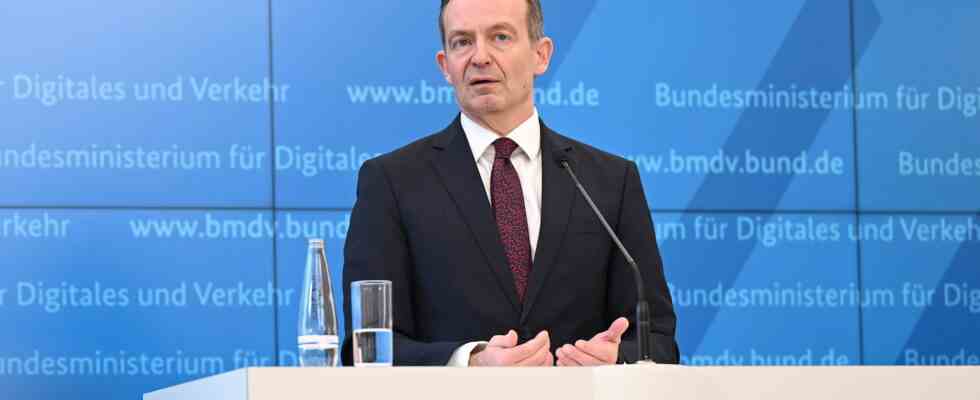Status: 07.03.2023 7:14 p.m
Actually, the EU countries wanted to finally get the combustion engine off today. But Transport Minister Wissing insisted on exceptions for synthetic fuels. What’s next?
It was an odd picture. At a press conference by Chancellor Olaf Scholz and his ministers Christian Lindner and Robert Habeck at Schloss Meseberg on Monday, a journalist asked the Minister of Finance about the debate on e-fuels. When he wants to answer, the Chancellor forestalls him. Lindner looks puzzled at first. But what Scholz had to say, he must have liked.
Because the chancellor placed himself before his coalition partner, the FDP, in the debate about phasing out combustion engines. The federal government is expecting a proposal from the EU Commission “which goes into how e-fuels can be used after 2035,” said Scholz.
EU vote on phasing out combustion engines postponed
Actually, the vote of the EU states on the end of new combustion vehicles from 2035 was scheduled for March 7th. Germany’s approval was considered a formality until the very end. Now the vote has been postponed due to pressure from the federal government. The FDP calls for exceptions for combustion vehicles that use synthetic fuels, so-called e-fuels. The Liberals see this as a possible building block in the climate-neutral road traffic of the future.
The EU has also promised proposals for this, but never submitted them, said Federal Transport Minister Volker Wissing today in the ARD lunchtime magazine. It is therefore “not surprising” that the decision cannot be approved. In June last year, at the urging of the FDP, the federal government agreed on a compromise that cars with combustion engines can also be registered after 2035 if they use climate-friendly synthetic fuels.
Wissing spoke to EU Commission President Ursula von der Leyen in Meseberg about exceptions for e-fuels. Both remained vague about the result. We are “on the right track,” says Wissing.
Criticism from Greens and car manufacturers
The issue remains controversial within the traffic light government. While Chancellor Scholz was trying to find unity in Meseberg, Greens Federal Chairman Omid Nouripour criticized the FPD’s blockade on the combustion engine shutdown. An agreement must now be reached quickly so that Germany “remains a reliable partner after all the consultations and votes in the EU”.
He also emphasized that German automakers need planning security. In any case, they are “long on a path other than the combustion engine”. In fact, most car manufacturers have already announced their intention to go fully electric. In view of the German blockade, Audi boss Markus Duesmann recently warned against the mirror of a “hanging game” for the auto industry.
How useful are e-fuels?
However, the FDP emphasizes that no possibilities should be ruled out when it comes to climate-neutral mobility. She repeatedly called for “technology openness” in the debate. But it is questionable whether there is a realistic perspective for e-fuels in road traffic. Because they are considered expensive and inefficient. Manufacturing would consume large amounts of electricity from renewable sources. Critics say that it should better flow directly into charging stations for electric cars in order to avoid major losses in effectiveness.
E-fuels are particularly useful for heavy machines that cannot be operated with batteries, such as airplanes, says the director of the Helmholtz Institute in Ulm, Maximilian Fichtner. Audi boss Duesmann also brings synthetic fuels into the conversation as a clean option for combustion cars that will still be on the roads until 2035. They are not considered for new cars from 2035, as Audi wants to phase out combustion engines two years earlier.
What’s next?
The Association of the Automotive Industry also emphasized that electric mobility is the key technology for achieving the climate goals in transport. A VDA spokesman said that e-fuels would have to be included in the transitional period MDR.
So the debate about phasing out combustion engines continues. The federal government sees the EU Commission on the train to develop a proposal for the use of climate-neutral, synthetic fuels. There is no new date for a vote yet.

